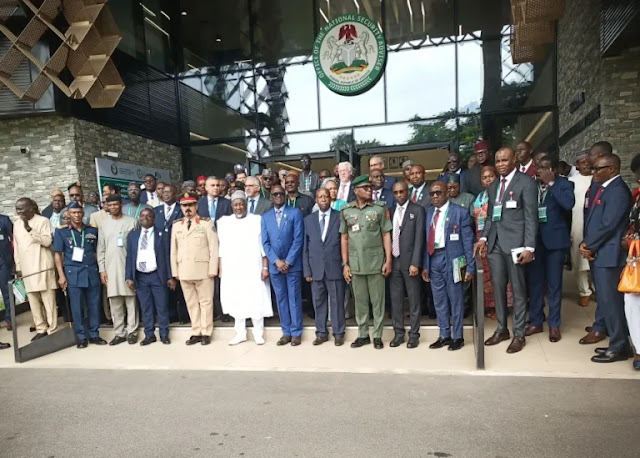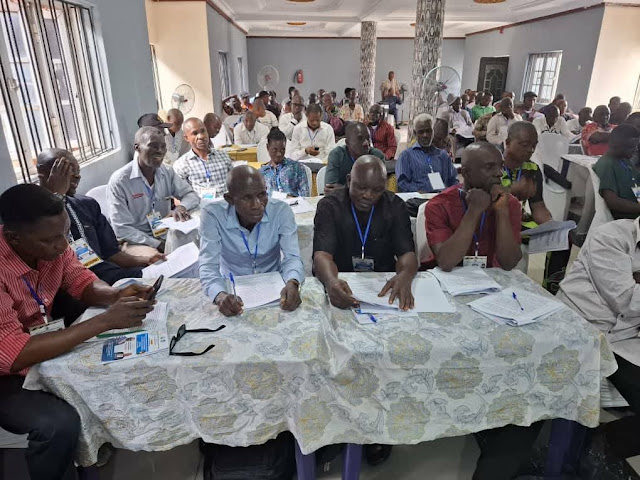In a sobering declaration, the United Nations (UN) has identified Africa, particularly West Africa and the Sahel, as the new global epicentre of terrorism, surpassing the Middle East in both fatalities and the concentration of terror-affected countries in 2024. This alarming statement was made by Leonardo Simão, the UN Special Representative of the Secretary-General for West Africa and the Sahel, during a regional conference in Abuja on Wednesday, September 3, 2025. The conference, organized by Nigeria’s National Counter Terrorism Centre (NCTC), focused on combating emerging terrorist groups and strengthening sustainable security in the Economic Community of West African States (ECOWAS) region and the Sahel. This article provides an in-depth exploration of the UN’s warning, the factors contributing to Africa’s rise as a terrorism hub, the devastating human toll, proposed solutions, and the broader implications for the continent’s security and development.
Background: The Shifting Landscape of Global Terrorism
For decades, the Middle East was synonymous with global terrorism, with groups like Al-Qaeda and the Islamic State (ISIS) dominating headlines due to their high-profile attacks and territorial ambitions. However, recent years have witnessed a dramatic shift, with sub-Saharan Africa, particularly the Sahel and West Africa, emerging as the new frontline in the global fight against terrorism. According to the 2025 Global Terrorism Index (GTI), cited by Simão, West Africa and the Sahel accounted for the majority of terrorism-related fatalities in 2024, with five of the ten most terror-affected countries globally located in this region. This shift reflects a complex interplay of factors, including political instability, weak governance, poverty, and the exploitation of local grievances by terrorist groups.
The Sahel, a semi-arid region stretching across countries like Burkina Faso, Mali, Niger, and Chad, has become “ground zero” for this crisis, with terrorism-related deaths exceeding 6,000 annually for three consecutive years. Burkina Faso, in particular, has emerged as the world’s most affected country, recording a staggering 68% increase in terrorism deaths in 2024. The spread of violence to coastal West African states, such as Benin, Togo, and Ghana, further underscores the growing threat, with violent attacks in these areas rising by over 250% in just two years. This article delves into the causes, consequences, and potential solutions to this escalating crisis, drawing on insights from the UN, regional leaders, and security experts.
The UN’s Warning: Africa as the Epicentre of Terrorism
Speaking at the Regional Conference on Combating Emerging Terrorist Groups and Strengthening Sustainable Security in the ECOWAS Region and the Sahel, Leonardo Simão painted a grim picture of Africa’s security landscape. He highlighted that the continent, particularly West Africa and the Sahel, has overtaken the Middle East as the global hub of terrorism, accounting for over half of all terrorism-related deaths worldwide in 2024. “The global terrorism landscape is shifting at an alarming rate,” Simão stated, noting that groups like Al-Qaeda, the Islamic State West Africa Province (ISWAP), and emerging factions like Lakurawa are expanding their reach and employing advanced technologies to devastating effect.
Simão emphasized the human toll of this crisis, citing 1,364 children recruited by armed groups across six countries, 466 documented cases of sexual violence, and the closure of 14,364 schools due to insecurity in 2024 alone. These figures, he argued, represent “stolen futures, fractured communities, and deepening fragility.” The UN representative also pointed to the 2025 GTI, which revealed that five of the ten most terror-affected countries globally are in West Africa and the Sahel, with Burkina Faso leading the world in terrorism deaths. This escalation is driven by groups exploiting governance gaps, ethnic divisions, and economic deprivation to recruit and radicalize vulnerable populations.
Factors Driving the Rise of Terrorism in Africa
Several interconnected factors have contributed to Africa’s emergence as the global epicentre of terrorism:
Political Instability and Weak Governance: The Sahel has been plagued by political instability, with successive coups in Burkina Faso, Mali, and Niger weakening state institutions and regional security mechanisms. These coups have led to the withdrawal of international forces, such as French and US troops, and the dissolution of regional frameworks like the G5 Sahel, creating a vacuum that terrorist groups have exploited.
Poverty and Economic Deprivation: Extreme poverty and unemployment, particularly among youth, provide fertile ground for terrorist recruitment. Groups like ISWAP and Boko Haram capitalize on disillusionment, offering financial incentives and a sense of purpose to vulnerable individuals. In the Sahel, where over 40% of the population lives below the poverty line, economic desperation fuels extremism.
Ethnic and Social Grievances: Terrorist groups exploit ethnic divisions and local grievances to gain support. For example, in northern Nigeria and the Lake Chad Basin, Boko Haram has targeted marginalized communities, while in the Sahel, groups like Jama’at Nusrat al-Islam wal-Muslimin (JNIM) have made inroads among disaffected populations in Benin, Togo, and Ghana.
Proliferation of Arms and Technology: The availability of sophisticated weapons, including drones and improvised explosive devices (IEDs), has empowered terrorist groups. Simão noted that groups are using encrypted communications and cyber tools to coordinate attacks with greater precision and psychological impact.
Regional Fragmentation: The withdrawal of Mali, Burkina Faso, and Niger from ECOWAS and the dissolution of the G5 Sahel have weakened regional cooperation, making it harder to coordinate counter-terrorism efforts. This fragmentation has allowed groups like Al-Qaeda and ISIL affiliates to expand their operations across borders.
The Human Toll of Terrorism in Africa
The rise of terrorism in Africa has exacted a devastating human toll, particularly in West Africa and the Sahel. According to the Africa Center for Strategic Studies, nearly 25,000 civilians were killed by terrorism and political violence in West Africa between the fourth quarter of 2021 and the second quarter of 2024, with civilians accounting for 37% of all victims. In 2023 alone, terrorism and political violence displaced 6.1 million people in West Africa, disrupting access to education, healthcare, and livelihoods.
Children have been particularly affected, with 1,364 recruited into armed groups in 2024, often through coercion or economic desperation. Schools have become targets, with 14,364 institutions closed due to insecurity, depriving millions of children of education. Sexual and gender-based violence, including forced marriages and abductions, has also surged, with 466 documented cases in 2024. These atrocities have fractured communities, deepened trauma, and undermined social cohesion.
In the Sahel, Burkina Faso has borne the brunt of this crisis, with 1,907 terrorism deaths in 2023, accounting for a quarter of global fatalities. Coastal states like Benin and Togo have also seen a sharp rise in violence, with fatalities doubling to 173 and 69, respectively, in the past year. The emergence of new groups like Lakurawa, operating across Nigeria, Niger, and Chad, further complicates the security landscape, with cross-border attacks threatening regional stability.
Proposed Solutions: A Multifaceted Approach
Addressing Africa’s terrorism crisis requires a multifaceted approach that goes beyond military action. During the Abuja conference, Simão and other speakers outlined several strategies to combat the scourge:
Addressing Root Causes: Simão emphasized that terrorism thrives on fragility, poverty, and inequality. Investments in education, healthcare, and economic opportunities are critical to addressing these drivers. The UN’s Pact for the Future, adopted in September 2024, provides a framework for tackling these structural issues.
Human Rights-Based Approaches: Counter-terrorism efforts must respect human rights and the rule of law to avoid alienating communities. Heavy-handed responses by military juntas, often supported by unaccountable mercenaries, have exacerbated civilian deaths and fueled resentment. Amina Mohammed, UN Deputy Secretary-General, stressed the need for “human rights-based approaches grounded in accountable and inclusive institutions”.
Regional Cooperation: Strengthening regional frameworks like ECOWAS and the African Union (AU) is essential for coordinated counter-terrorism efforts. Simão highlighted ECOWAS’s commitment to establishing a regional counter-terrorism force, with funding options including a 5,000-man brigade costing $2.61 billion or a phased 1,650-man force costing $481.5 million.
Disrupting Terrorist Supply Chains: ECOWAS is focusing on intercepting weapons, ammunition, fuel, illicit funds, and dual-use items like fertilizers used to fabricate IEDs. This approach aims to suffocate terrorist networks and limit their operational capacity.
African-Led Solutions: The AU and UN have emphasized the importance of African-led and African-owned solutions. The AU’s Counter-Terrorism Centre recorded over 3,400 terrorist attacks in 2024, resulting in 13,900 fatalities, underscoring the need for African leadership in addressing the crisis.
International Support: The UN Security Council’s Resolution 2719 (2023) opens the door for UN funding for African-led peace support missions, providing a potential lifeline for counter-terrorism efforts. International partners like INTERPOL and the Financial Action Task Force are also supporting efforts to combat money laundering and terrorism financing.
Implications for Africa’s Future
The UN’s designation of Africa as the global epicentre of terrorism has profound implications for the continent’s security, development, and global standing:
Security Challenges: The spread of terrorism threatens regional stability, with groups like Al-Shabaab in Somalia, the Allied Democratic Forces in the Democratic Republic of Congo, and Ahlu Sunna Wal Jama in Mozambique continuing to unleash violence. Without coordinated action, the crisis could spill over into new regions, further destabilizing the continent.
Development Setbacks: Terrorism disrupts education, healthcare, and economic activities, undermining progress toward the UN’s 2030 Agenda and the AU’s Agenda 2063. The closure of 14,364 schools in 2024 alone highlights the devastating impact on future generations.
Humanitarian Crisis: The displacement of 6.1 million people in West Africa in 2023 has created a humanitarian crisis, with millions lacking access to food, shelter, and healthcare. Addressing this crisis requires urgent international support and regional cooperation.
Global Implications: As terrorism in Africa grows, it poses a global threat, with groups leveraging transnational networks for recruitment, financing, and attacks. The international community must prioritize support for African-led solutions to prevent the crisis from escalating further.
Stakeholder Reactions
The UN’s warning has elicited reactions from various stakeholders. ECOWAS Commissioner for Political Affairs, Peace, and Security, Dr. Abdel-Fatau Musah, commended Nigeria’s leadership in counter-terrorism efforts and emphasized the need to disrupt terrorist supply chains. The AU’s Counter-Terrorism Centre called for innovative financing models and greater involvement of civil society, youth, and women in counter-terrorism efforts. Security analysts have urged the international community to provide sustainable funding and technical support, warning that the withdrawal of Western forces has exacerbated the crisis.
Civil society organizations have highlighted the need to address the root causes of terrorism, such as poverty and marginalization, while communities in affected areas have called for greater protection and humanitarian aid. The Nigerian government, through the NCTC, has reaffirmed its commitment to leading regional efforts to combat terrorism, with initiatives like the Abuja conference signaling a proactive approach.
The Way Forward
Addressing Africa’s terrorism crisis requires urgent, coordinated action at local, regional, and international levels. Key priorities include:
Strengthening Governance: African governments must address governance gaps, corruption, and ethnic divisions to reduce the appeal of terrorist groups. Transparent and inclusive institutions are critical to rebuilding trust.
Investing in Development: Scaling up investments in education, healthcare, and job creation will address the root causes of extremism, particularly among youth. Programs like the UN Integrated Strategy for the Sahel, approved in 2013, provide a blueprint for holistic development.
Enhancing Regional Cooperation: ECOWAS and the AU must strengthen regional frameworks to coordinate counter-terrorism efforts. The activation of Resolution 2719 (2023) could provide critical funding for these initiatives.
Leveraging Technology: Counter-terrorism strategies must adapt to the evolving tactics of terrorist groups, including their use of drones and cyber tools. Investments in intelligence, surveillance, and cybersecurity are essential.
Engaging Communities: Involving civil society, youth, and women in counter-terrorism efforts can foster resilience and reduce radicalization. Community-led initiatives, such as those supported by the AU, are critical to long-term success.
Conclusion
The UN’s declaration that Africa is now the global epicentre of terrorism is a wake-up call for the continent and the world. The alarming rise in fatalities, displacement, and school closures underscores the urgent need for action to address this multifaceted crisis. While military responses are necessary, long-term solutions must focus on addressing root causes, strengthening governance, and fostering regional and international cooperation. The efforts of ECOWAS, the AU, and the UN, combined with African-led initiatives, offer hope for reversing this trend. By prioritizing human rights, development, and inclusivity, Africa can reclaim its future from the grip of terrorism and build a more secure and prosperous continent.







